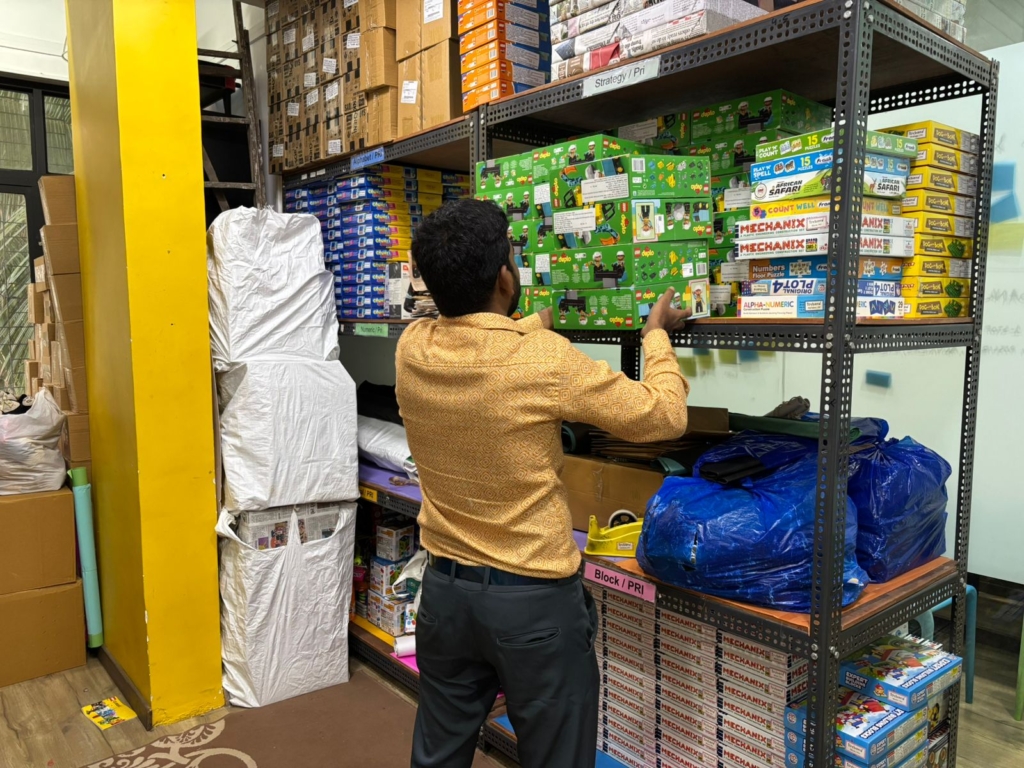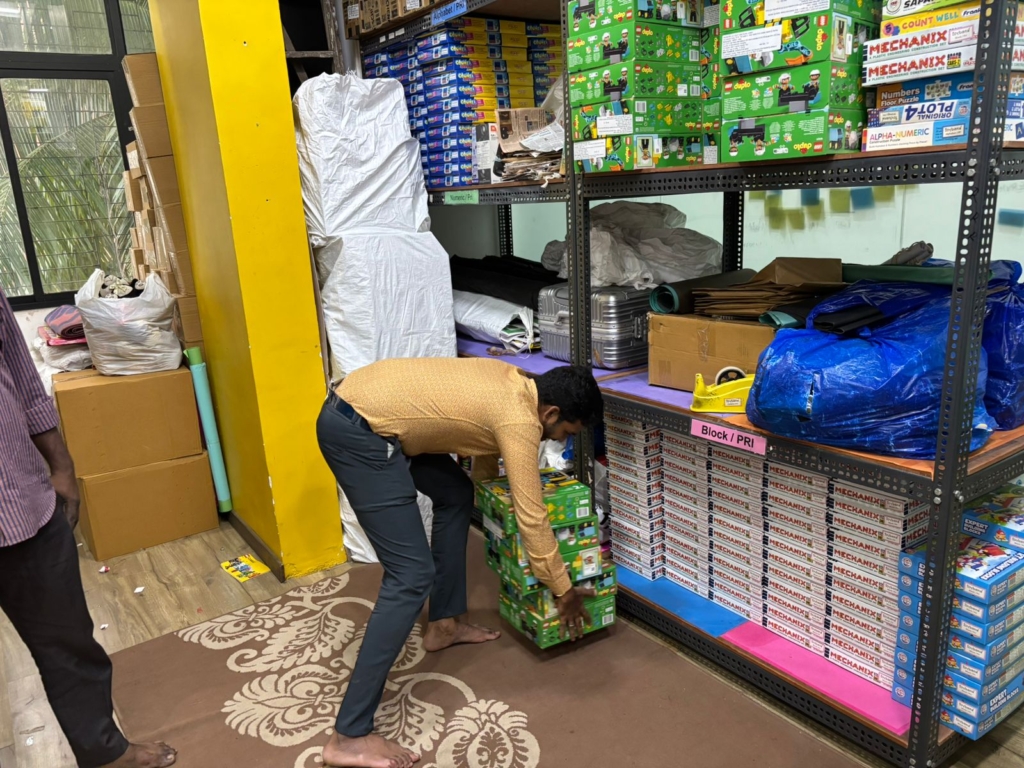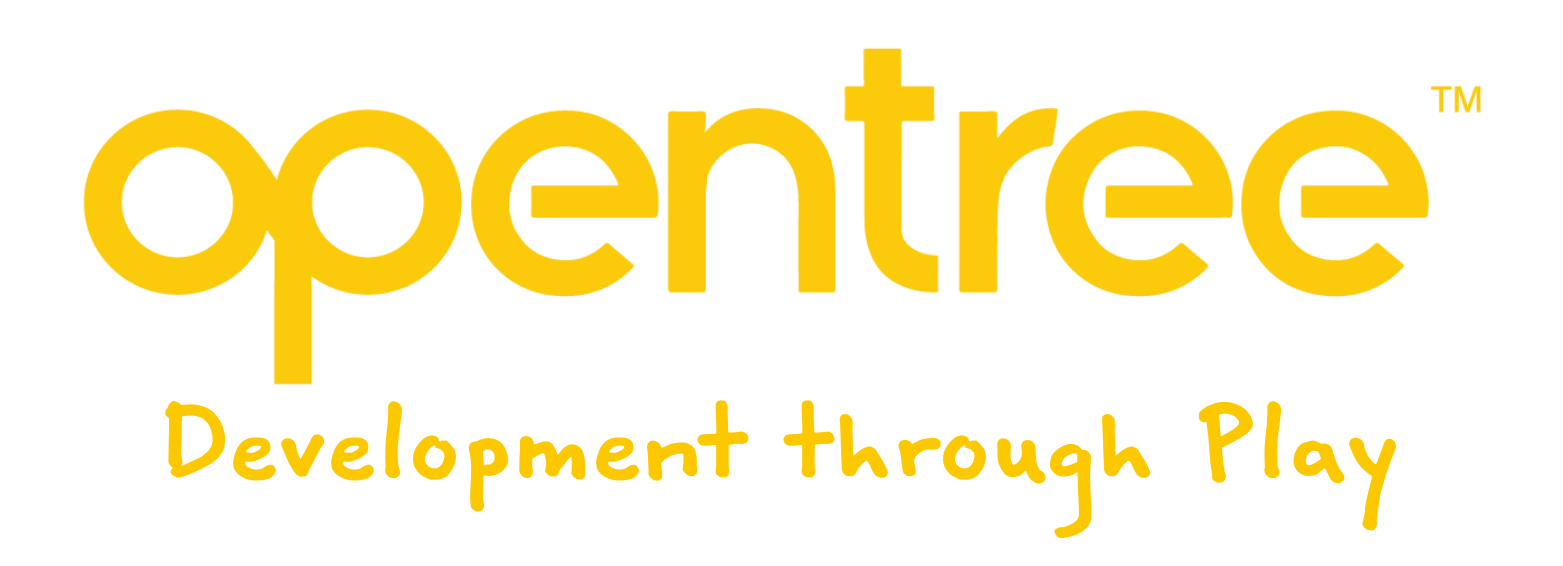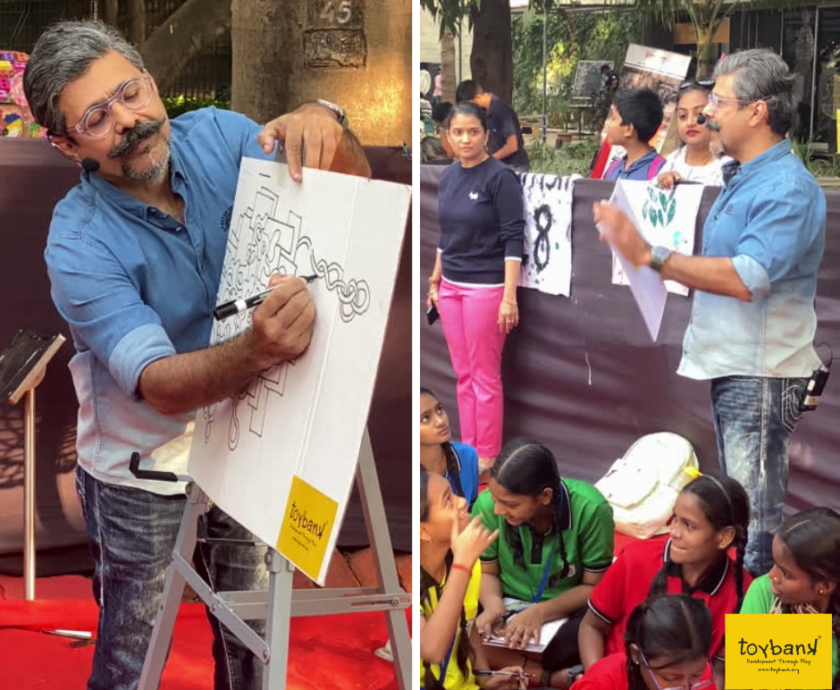At The Opentree Foundation (TOF), play doesn’t just live in classrooms and play centres, it also finds its way into homes, into homes of its team members, shaping families and children in powerful ways. For Amol Kedase, who has been part of TOF’s inventory team since 2021, work is more than packing, dispatching, and tracking games. It is about absorbing the world of play so deeply that it naturally becomes part of his parenting. At TOF, the Inventory team looks after every aspect of the games: from sorting, coding, and packing them, to dispatching them across schools and communities.


From Sports to Board Games
Amol has always been a lover of play. Growing up, most of his play was outdoors: running, competing, inventing games with friends. One of his fondest childhood memories is of Chalas, a self-invented game inspired by Snakes and Ladders, played with tamarind seeds. But when he joined TOF, a whole new world of board games opened up to him.
“I didn’t know board games had so much depth,” he says. “Rather, I didn’t know that play had so much depth. When I first saw the inventory room, it amazed me to see so many ways of playing and learning packed inside boxes.”
Over the years, he has become an expert in every rule, strategy, and variation of the hundreds of games TOF uses. This knowledge, he realised, could also enrich his own home and his three-year-old son.


Play Meets Parenthood
Soon after joining TOF, Amol became a father. The timing was perfect. His professional exposure to play equipped him with new tools for raising his son, Aansh.
“The first toy I brought home was a rattler,” he recalls. “My son was barely a year old, but the sound and movement caught his attention. It helped sharpen his sensory skills.”
From there, Amol started introducing age-appropriate games to Aansh, sometimes directly from the TOF inventory, sometimes by improvising. At just 2.5 years old, Aansh surprised his father by reimagining a bowling game: “I had mistakenly lined up all six bottles in a straight row, so they wouldn’t fall properly. Aansh suggested placing them in rows of two. He kept changing the formation to make the game more fun. That was the first time I realised how play could build problem-solving skills at such a young age.”

Play helps Aansh lead, learn, grow
For Aansh, play is more than fun, it’s a way of learning about the world. He quickly picked up numbers, alphabets, and shapes through puzzles and sorting games. With a map puzzle, he began recognising states and capitals. He even memorised the names of social leaders like Dr BR Ambedkar, proudly identifying them from photos his father pinned up at home.
But beyond academics, Amol noticed deeper social and emotional growth. “He plays the role of a teacher with younger children in our neighbourhood,” Amol shares. “He talks politely, helps them when they get stuck, and even teaches them to say thank you.”
In moments of frustration too, play taught resilience. “Sometimes he gets bored or upset with a game. Instead of forcing him, I change the rules to make it interesting again. Play gives children agency, and it’s important to let them own that.”


A Child Who Waits for Games Every Day
For Aansh, games are now a part of daily life. The moment Amol steps home, his son’s first question is: “What game have you brought today?” Whether it’s a brand-new puzzle, blocks, or even preloved donated books and toys, the excitement is the same.
Interestingly, his creativity isn’t limited to ready-made games. Building things is his favourite way to play. Soap bars and biscuit packets at home often turn into blocks for towers and bridges. “He once made a three-storey building out of soap,” Amol laughs.


Lessons Beyond the Inventory
Amol believes that play has given his son a faster grasp of concepts compared to traditional teaching methods. “In school, when other parents asked why my younger son was admitted early, the teacher explained that he was already comfortable with rules, packing away games, and answering questions, skills children usually learn much later. That was all thanks to the exposure he got through play at home.”
For Amol, this blend of work and fatherhood has created a unique bond. Whether it’s fishing out toy fishes faster than the rest of the family, or confidently narrating the rules of a new game, every shared moment strengthens their connection.


When Play Becomes a Way of Life
Today, Amol sees play not just as an activity, but as a foundation for any child, something that keeps children curious, teaches resilience, and strengthens family bonds. “Children mirror us,” he reflects. “Even on tired days, I make time for play because I know it shapes how my son grows up. Play has truly become a way of life in our home.”
At TOF, stories like Amol’s remind us that play is not just for the children we work with, it transforms our team members and their families too. When play comes home, learning never stops.












